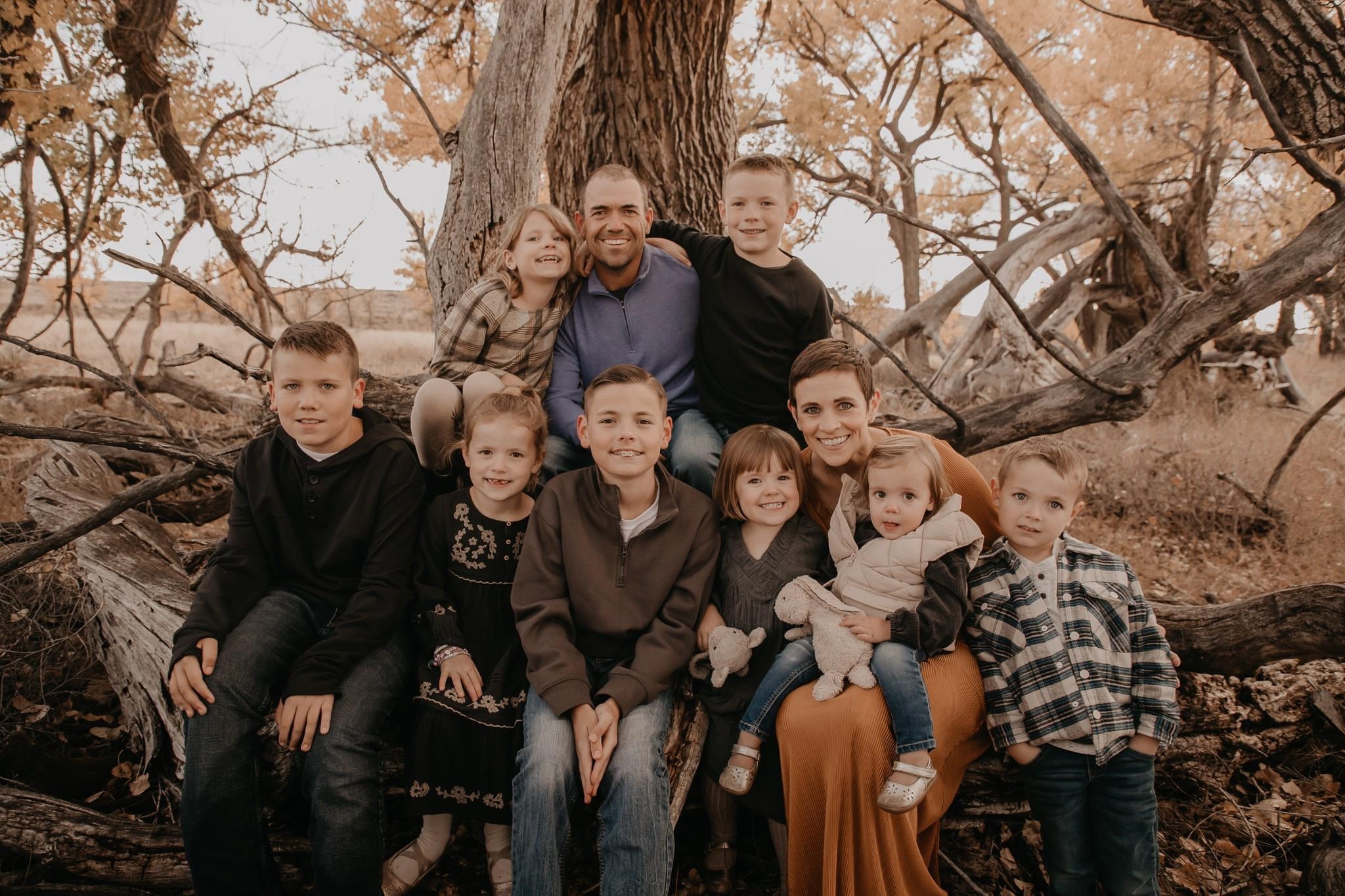Britt Fisk received her diagnosis in October 2020
By Diego Flammini
Staff Writer
Farms.com
After giving birth to seven children, Britt Fisk figured she knew her body pretty well.
But during her eighth pregnancy in June 2020 is when the rancher from Clayton, N.M., discovered something unusual.
“I scratched an itch on my chest, and I felt kind of a knot,” she told Farms.com. “I convinced myself that it was changes associated with the pregnancy and that I would get it checked out after those changes go away.”
Fisk delivered her eighth child, Agnes, in August 2020.
Agnes was born with LUMBAR syndrome, “a rare condition that appears as a hemangioma or multiple hemangiomas on the lower body,” UChicago Medicine says.
Agnes required specialized care out of state and Britt forgot about the knot, until she felt it again.
“I messaged my OBGYN the next day,” she said. “They got me in for a mammogram, but they didn’t think it would show anything.”
Two days after she received part of the diagnosis.
“This was in October. They told me I had cancer, but I didn’t know what kind,” she said. “So, you’re in this limbo for almost a week waiting to hear back. That was hard.”
Her complete diagnosis was triple-positive breast cancer in Stage 2B.
Triple-positive breast tumors are fed by estrogen, progesterone and the HER2 protein.
Stage 2B means either “the tumor is between 2 and 5 centimeters and has spread to less than four axillary lymph nodes,” or “the tumor is larger than five centimeters, but has not spread to any axillary lymph nodes,” the National Breast Cancer Foundation says.
For Fisk, this diagnosis represented a bookmark in her life.

The Fisk family.
“There’s life without cancer and now there’s life with cancer,” she said. “My kids asked me if I was going to die, and I couldn’t tell them no, because I didn’t know. There’s a lot of leftover physical trauma involved and some days I feel twice as old as I am. It’s a reminder of what I’ve been through.”
All of this occurred with COVID in the background.
This meant Fisk had to attend most of her appointments alone.
“It was tough at first, but there was a bit of a silver lining,” she said. “Any time I received news I could process it by myself without worrying about having a family member in the room and how sad they might be.”
Fisk received her care in Texas.
Her order of treatment went chemotherapy, then surgery followed by radiation.
She had about four months of chemotherapy, followed by a double mastectomy without reconstruction. Then, in April of 2021, she underwent additional chemotherapy and radiation.
"Chemotherapy was difficult in so many ways, but beyond the physical aspect, the toll it takes mentally weighs most heavily," she said. "It's almost an out-of-body experience with the brain fog and mental game it plays. Radiation caused burning and more fatigue, but in my opinion, didn't compare to chemotherapy."
Fisk had a large support group around her.
Her mom drove her to chemo appointments, and they met a family in Houston that let her stay if she had to be in the city for an extended period.
Community members prayed for them and brought meals, and other family members helped her husband, Jeremy, tend to the farm.
Fisk is cognizant she could be the one providing support one day.
Of the family’s eight children, four are girls.
About 15 percent of women diagnosed with breast cancer have a first-degree relative (mother, sister or daughter) who has had it too.
“I do think about it, and I thought about it a lot more at the beginning of my journey,” she said. “For me now, there’s more of a focus on their health. It adds this burden that as a parent you never want for your child.”
When Fisk looks at her body, she sees the toll the breast cancer took on her physically.
When times got tough, she remembered all she has to fight for.
“People ask me how I got through this, but honestly how do I not?” she said. “I’ve got my faith, and my family. I’ve got so many reasons to be strong. Just because I carried the cross well doesn’t mean it wasn’t heavy.”
Despite her difficult path, Fisk has taken something positive away from her breast cancer journey.
She’s learned that she’s not always in control – and that’s okay.
“No matter how hard I try to keep everything in my grip, I just can’t,” she said. “And it’s so much more of a peaceful journey when you just let go of some things and trust that everything is going to work out.”
The National Breast Cancer Foundation estimates almost 300,000 new cases of breast cancer will be diagnosed in 2023.
For women who are starting their health journeys, Fisk wants them to know everything will work out in the end.
“You’re going to be okay,” she said. “It may take a really long time, but there will be peace and there will be some good.”
Throughout October, Farms.com will be speaking with multiple breast cancer survivors in the ag community.